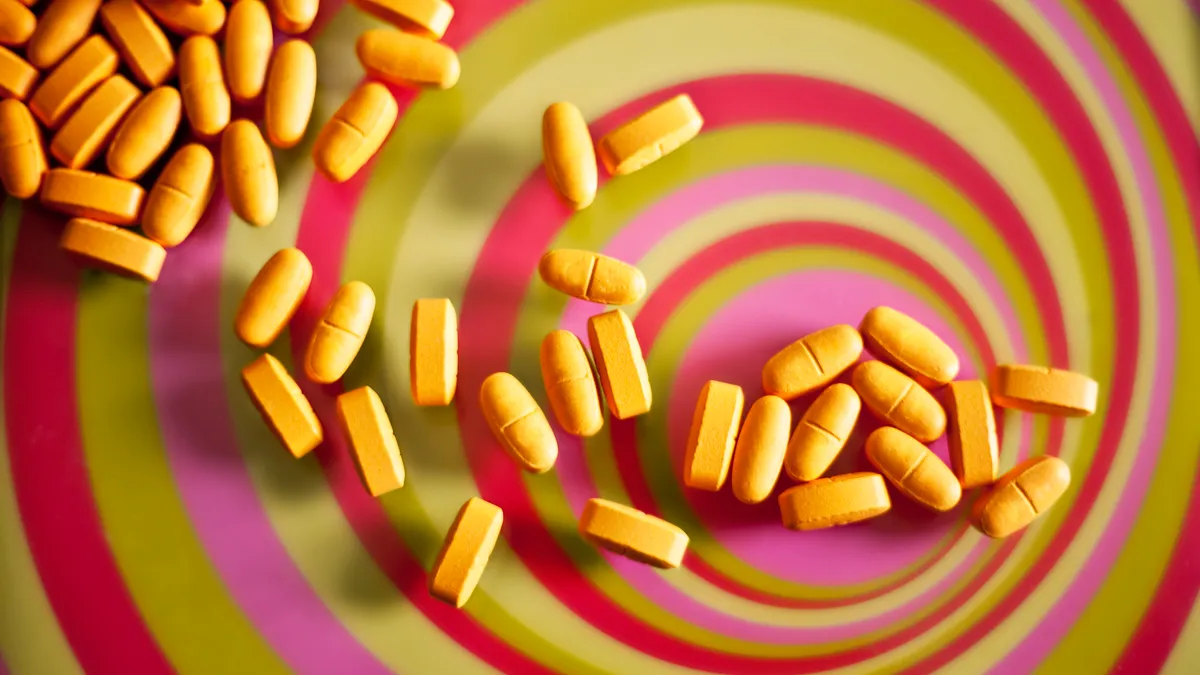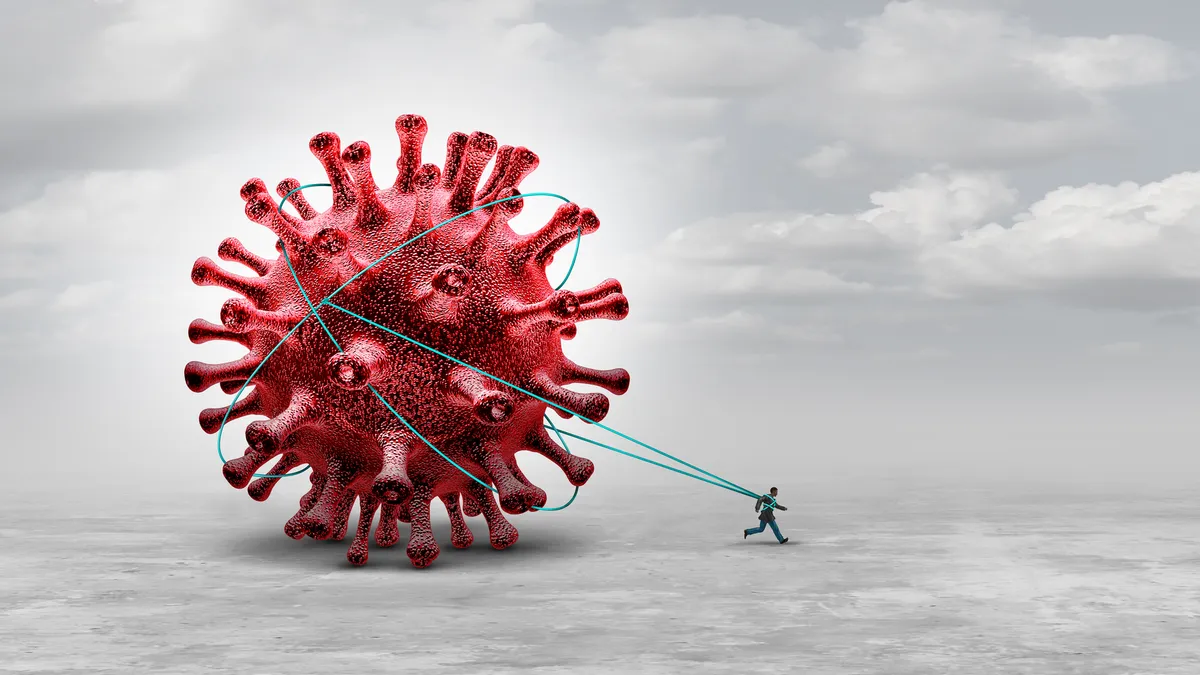Alcohol use disorder is a tough nut to crack when it comes to finding effective treatments. Alcohol is not only legal, but fully embedded and embraced in our culture, despite being one of the most addictive substances on earth. Even the most well-known alcohol recovery program, Alcoholics Anonymous, has a squishy and hard-to-quantify success rate that some researchers say is only about 5-10%.
"The unmet need is huge," says Adi Zuloff-Shani, CEO of Clearmind Medicine, a Canadian psychedelic medicine biotech. "The treatments and drugs that are approved today by [the] FDA or other regulatory agencies are not sufficient — they are not effective enough, [and] they come with a bunch of adverse events."
That's why Zuloff-Shani is so optimistic about MEAI, the psychoactive compound Clearmind is developing into a treatment called CMND-100 for alcohol use disorder and other binge behaviors. Like many other psychedelic drugs currently in development, MEAI started its life as a recreational drug and was used as an alcohol substitute, since it provides a "euphoric" experience that also reduces the desire to drink alcohol.
Clearmind owns the rights to MEAI and several patents related to it. Just under a year since beginning operations in May 2021, Clearmind has raised $9.4 million Canadian dollars ($7.44 million) and is scheduled to meet with the FDA in May. In addition, Clearmind is studying MEAI for binge eating with the Hebrew University of Jerusalem’s Obesity and Metabolism Laboratory.
It also recently announced the results of two successful preclinical trials which tested suppression of alcohol consumption in mice using its therapeutic CMND-100.
The first trial examined the effect of CMND-100 in several doses as a monotherapy. The second, done in collaboration with the Israeli-based pharmaceutical company SciSparc Ltd., examined how well lower concentrations of CMND-100 worked when combined with SciSparc's medical cannabinoid CannAmide. In both trials, the drugs successfully lowered the mice's alcohol consumption.
Like other companies developing psychedelic drugs into FDA-approved treatments, Clearmind finds itself working backwards in a lot of ways — plenty of humans have already taken MEAI.
"It's quite an unusual situation where we have those human testimonials and we don't have a lot about the mechanism of action and not a lot of preclinical studies," Zuloff-Shani says.
In addition to MEAI, Clearmind has been working on developing other compounds with partners and plans to make announcements about those candidates later this year. For now, CMND-100 is the only candidate in the company’s pipeline and Clearmind is treating the compound like any other drug in development.
"We are a pharmaceutical company; we are developing a pharmaceutical treatment," she says.
Zuloff-Shani, who's based in Israel and holds a Ph.D. in human biology and immunology, took on the CEO role in July 2021 after spending her career in biotech, including as vice president of development at Macrocure, where she led R&D activities.
PharmaVoice talked with Zuloff-Shani, about the promise of MEAI and why psychedelics are getting so much attention in pharma.
This interview has been edited for length and clarity.
PharmaVoice: What drew you to this company in particular?
Adi Zuloff-Shani: What drove me to Clearmind is the huge potential that the active pharmaceutical ingredients of psychedelics have to offer to a market that doesn't have good solutions in the mental health area.
Sometimes I think patients really feel that it's better to cope with whatever they suffer from, just not to be exposed to the adverse events associated with some of the drugs.
Psychedelics have such promising effectiveness. Mechanism-of-action-wise there's still a lot to reveal, but there's such good testimonials coming from people who use them because of the recreational background of psychedelics, very much like cannabis.
I really, truly believe that the potential to bring effective and safe treatments is huge and this is exactly what drove me to accept the role of CEO. My dream was always — and still is — to bring effective and safe treatments to patients, and I think that psychedelics can deliver.
How would CMND-100/MEAI work and be administered?
According to these testimonials and a preclinical study that we just completed … the effect is quite transient, which is something that makes the treatment safer.
It's not going to be a one-shot treatment. It's going to be multiple treatments, but patients will take it in the privacy of their own homes. It will be a prescription drug, for sure, but it wouldn’t need to be administered under the supervision of a psychiatrist, which will make it more affordable.
We think that — and the way we designed the clinical trial — you will take it once a day at night just before you go to sleep. We designed this drug to be something that you can consume in your everyday life.
Why are psychedelics having such a moment right now?
Mental health suffers from very bad treatments. There's a huge unmet need, but there's no good solution for anything like depression, addictions, alcoholism, drug addiction, eating disorders — really no good treatment. Most of the treatments that are approved are associated with a bunch of adverse events. Some of them even come with black label warnings from FDA.
It's a huge opportunity. Because of the recreational use, there's testimonials supporting the benefits of those compounds. You have testimonials for depression, PTSD and alcoholism in our case. It's very similar to medical cannabis.
I think today psychiatrists — and this is at least the feeling we get from the psychiatrists we are approaching to work with us and to cooperate with us — feel that psychedelics have a lot of potential in treating mental health. They believe that the future of treatment for mental health will come from psychedelic compounds.
Because of this unmet need, you also see from regulatory agencies a lot of opening toward those psychedelics. Obviously, you have to do everything by the book. You have to take all the steps that you'd take for any other pharmaceutical ingredient to show that it's safe and effective. But there's an opening from those regulatory agencies — the FDA for sure.



















